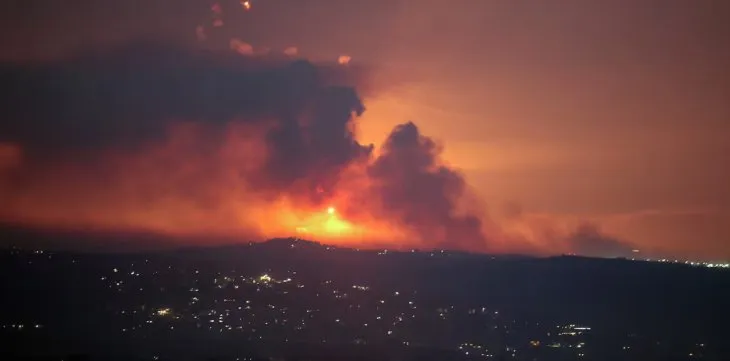According to sources in the sector, Energy Reportthe prices of YPF will lower a 3% average for the two versions of the diesel, while the Premium and super gasoline will descend 1.5%.
Today, the YPF super gasoline In the city of Buenos Aires you pay $1,059 per literwhile the highest quality is worth $1,309. While the diesel grade 2 quoted at $1,084 and the grade 3 to $1,334.
While the oil company from Badera will kick off, The rest of the competitors (Axion, Shell -Raízen- and Puma, among others) are expected to follow the same downward path next week.
The CEO and President of YPF, Horacio Marinwas the one who confirmed that a reduction in the value of the fuels at the pumps. “We are looking at it for the weekend or next Monday. We are looking at the Brent barrel, which is volatile. Yesterday it was at US$73 or US$74, but at one point it was at US$72.”he described this Tuesday, September 24.
Marín added that with this drop in fuel prices, a paradigm shift will occur in this market. “For me, this is an important paradigm shift and we have to do it in Argentina. To be a normal country, when oil prices go up, we have to increase them, and when they go down, we have to lower the price of fuel.”he said.
Horacio Marin YPF
Last week, the company’s CEO gave a television interview where he anticipated the downward update.If the price of oil goes down, users do not have to subsidize YPF because it is not fair that we take a profit above what is logical for the sale of fuel. So, when the price goes up, we cannot raise the price of fuel because otherwise YPF will provide a subsidy to users. The price of a barrel fell by US$10 and rose by US$4 last week.”
The president of YPF also celebrated the reduction of the price gap between the different regions of Buenos Aires. “When we entered, the difference between the prices Federal Capital and the Suburban area was in the order of 15%. Today it is at 2% or 3%, practically nothing. “That is based on logical justice. It cannot be that fuel is more expensive in the Greater Buenos Aires than in the Federal Capital,” he said.
Why did the price of oil drop from $90 to $72?
According to analysts, the price of North Sea oil (Brent) and Texas WTI plummeted in recent weeks from record highs US$90 per barrel due to the decline in manufacturing activity in China and concerns about a possible recession in the US economy.
In addition, days ago the US Energy Information Agency (EIA) reported that Commercial oil inventories fell in the United States, but less than the market expected. In the week ending August 23, these stocks fell 800,000 barrelsmuch less than the 2.8 million expected by analysts.
But eurozone business activity also contracted sharply and unexpectedly in September as the bloc’s dominant service industry stagnated and the slowdown in the manufacturing sector accelerated.
What will happen to the price of oil in the future?
Shortly after the collapse from the border of the u$s90now crude oil has stabilized around US$74 per barrel. It is that the oil prices were boosted last week by the decision of the United States Federal Reserve to cut interest rates by 50 basis points and signal further cuts by the end of the year.
In parallel, the intensification of the conflict in Middle East could reduce regional supply and this situation forces the price up. The Israeli army launched its widest wave of airstrikes against Hezbollah, backed by Iran, simultaneously pointing south of the Lebanon, east of the Bekaa Valley and the northern region near Syria after almost a year of conflict.
“The prospect of Iran entering the conflict represents three million barrels at stake”held Stewart Glickman, “And Libya is a million more. And yet WTI is not above $80, which is a surprise to me,” he said.
“The market could continue to react to rising tensions in the Middle East, as clashes between Israel and Hezbollah continue. Growing concerns about a broader conflict disrupting regional supplies of oil could add bullish pressure to the market,” said BDSwiss market strategist, Mazen Salhab.
israelattack.jpg

Besides, It is expected that impasse in the situation in ChinaIn fact, China’s central bank announced its biggest stimulus since the COVID-19 pandemic to pull the economy out of its deflationary crisis and return it to the government’s growth target.
The larger-than-expected package, offering more funding and rate cuts, is the latest attempt to Beijing to restore confidence after a series of disappointing data raised fears of a prolonged structural slowdown.Today’s announcement will go some way to eliminating the risks of a fall in the price of crude oil.”said IG market analyst, Tony Sycamore.
But Kelvin Wongsenior market analyst at OANDA, said that “For the oil price rally to last, China’s accommodative monetary policies must be accompanied by expansionary fiscal policies to boost domestic demand”he concluded.
Source: Ambito
I am an author and journalist who has worked in the entertainment industry for over a decade. I currently work as a news editor at a major news website, and my focus is on covering the latest trends in entertainment. I also write occasional pieces for other outlets, and have authored two books about the entertainment industry.




